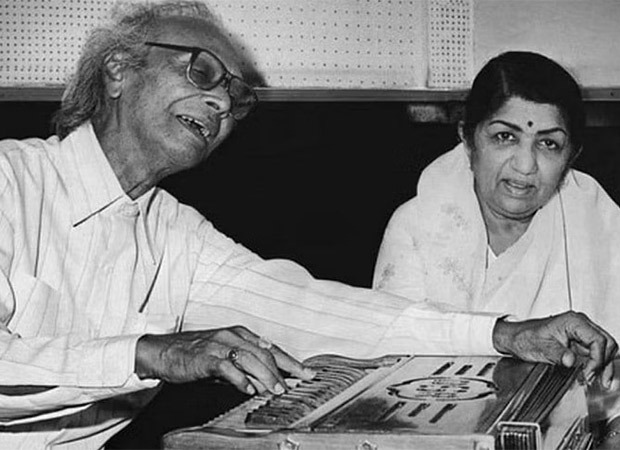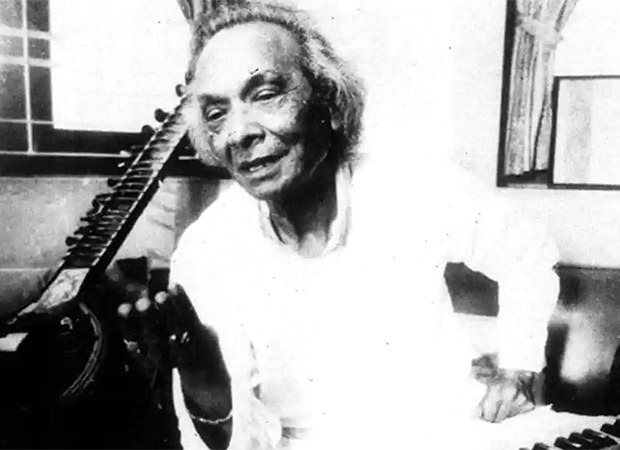
[ad_1]
Naushad Ali’s music was a complete motion-picture experience, designed and carved out of the choicest raw material obtainable to musicians. He is rightfully known as the first superstar-composer of Indian cinema. During a time when musicians and technicians were considered second-rate citizens in Hindi Cinema, Naushad became the first Indian music composer to have his name above the film title in the posters.

Birth Anniversary Special: Naushad, the composer who wouldn’t compromise
Naushad saab, whose 104th birth anniversary falls today, was a quality-conscious composer. He took his own sweet time over every song and score, carving each tune from the deepest recesses of his soul. That is because he believed music to be a mazhab, a religious faith. “Music is itself a religion. It’s a gift of God. It is universal,” he once said.
At the age of 10, Naushad saab was obsessed with music, much to the consternation of his father who wanted his son to be a wrestler. At age 18, he left his hometown Lucknow to become a music composer in Mumbai. During his early years of struggle when he earned Rs 40 for playing the piano in every score, Naushad was indebted to his mentor Khemchand Prakash.
Before Naushad’s Rattan, music in Hindi cinema was just a space-filler. In Rattan, composer Naushad changed the direction and destiny of Bollywood musicals for all times. The popular songs were designed especially for this film. And yet, they had a life beyond the screen. And what a life! Zohrabai Ambewali’s voice in the songs ‘Ankhiyan Milake’ and ‘Rimjhim Barse Badarwa’ became household favourites in the 1940s. While the film’s leading man Karan Dewan sang all his songs himself, all the female vocals were done by Zohrabai Ambewali and Amirbai Karnataki. These singers were soon to be wiped out from Bollywood’s playback singing by a hurricane called Lata Mangeshkar, who was no part of the Rattan soundtrack. The incredible singing machine that she was, Lata Mangeshkar acknowledged Rattan as the pioneer of motion picture soundtracks.
In Baiju Bawra, Naushad hit all the right tones. For the first time in Hindi cinema, classical Hindustani music was extensively used in every song. A fable-like film based on the infamous rivalry between the immortal singer Tansen, who sang in Emperor Akbar’s court, and Baiju a commoner with an even more exceptional voice who usurped Tansen’s courtly supremacy. Being based on Hindustani classical music, this film witnessed the initiation of classical elements into the popular Hindi film idiom. Each one of the songs composed by Naushad was based on an Indian raga. Legendary classical vocalist Ustad Aamir Khan sang for Tansen (played by Surendra).
But it was Mohammed Rafi singing for Baiju (played by Bharat Bhushan), the bawra (crazy) who blew the screen apart in monumental compositions like ‘Oh duniya ke rakhwale’ and ‘Mann tarpat hari darshan ko aaj’, both Bhajans written, composed and rendered by Muslim artistes. The music of Baiju Bawra has withstood the test of time. Composer Naushad once said to this writer, “I never took on more than one assignment at a time and then poured my complete devotion to it, none more so than Baiju Bawra. Every song was forged out of blood, sweat and tears.”
For Mughal-e-Azam, Naushad sought and got the immortal Hindustani classical vocalist Ustad Bade Ghulam Ali Khan. During a time when playback singers were paid a maximum of Rs10,000, Bade Ghulam Ali Khan demanded and got Rs.25,000 for his contribution to Mughal-e-Azam.
But Mughal-e-Azam is best known for Lata Mangeshkar’s ‘Pyar Kiya Toh Darna Kya’. Naushad was very close to not just Lataji but her entire family, especially her brother Hridaynath. When Lataji’s brother had a son, he named his child Baijnath inspired from the film Baiju Bawra, which was one of Naushad Saab’s earliest classic classical scores.

Hridaynath also sang for the child actor who played Baiju and Lataji sang for baby Tabassum who played the child Meena Kumari. Lataji admitted she owed a lot to Naushad saab. In terms of voice modulation and specially pronunciation of Urdu words, he took keen interest in the way Lataji sang and helped her through difficult Ghazals like ‘Uthaye jaa unke sitam’ in Andaz and ‘Na milta gham toh barbaadi ke afsaane’ in Amar.
There is a false mythology surrounding Lataji’s rendition of ‘Pyar kiya toh darna kya’ that Naushad saab got the echo effect in the song by making Lataji sing in the bathroom of the recording room. No such thing happened.
Naushad was a perfectionist to the core. He would not compromise on a single note in a melody. That explains why ‘Madhuban mein radhika nache re’ and ‘O duniya ke rakhwale’ are to this day hummed by music connoisseurs. He chose his assignments very carefully. And once he selected a project, Naushad was an undisputed king. Any interference from the producer or any other member of the unit wasn’t just unacceptable, but unimaginable.
There’s a story of how a producer tried to tell Naushad saab how to do his job. The temperamental composer heard him out, and then said, “Why don’t you do the music yourself, since you know so much about composing?” And he walked out.
Naushad’s knowledge of classical and popular Indian music made him the most eligible candidate for composing immortality. He introduced western-style orchestras in the songs of the epic films of the era. K Asif’s Mughal-e-Azam, Mehboob Khan’s Mother India and Andaz, Vijay Bhatt’s Baiju Bawra, Nitin Bose’s Ganga-Jumna, and H S Rawail’s Mere Mehboob, were some of his most celebrated musical scores in the 1950s and ‘60s. He constantly experimented with sound and voices. If Mohammad Rafi was his favourite male singer, with Lata Mangeshkar, Naushad created some of her most popular melodies. The end result was the closest thing to perfection.
More Pages: Baiju Bawra Box Office Collection , Baiju Bawra Movie Review
BOLLYWOOD NEWS – LIVE UPDATES
Catch us for latest Bollywood News, New Bollywood Movies update, Box office collection, New Movies Release , Bollywood News Hindi, Entertainment News, Bollywood Live News Today & Upcoming Movies 2023 and stay updated with latest hindi movies only on Bollywood Hungama.
[ad_2]
Source link